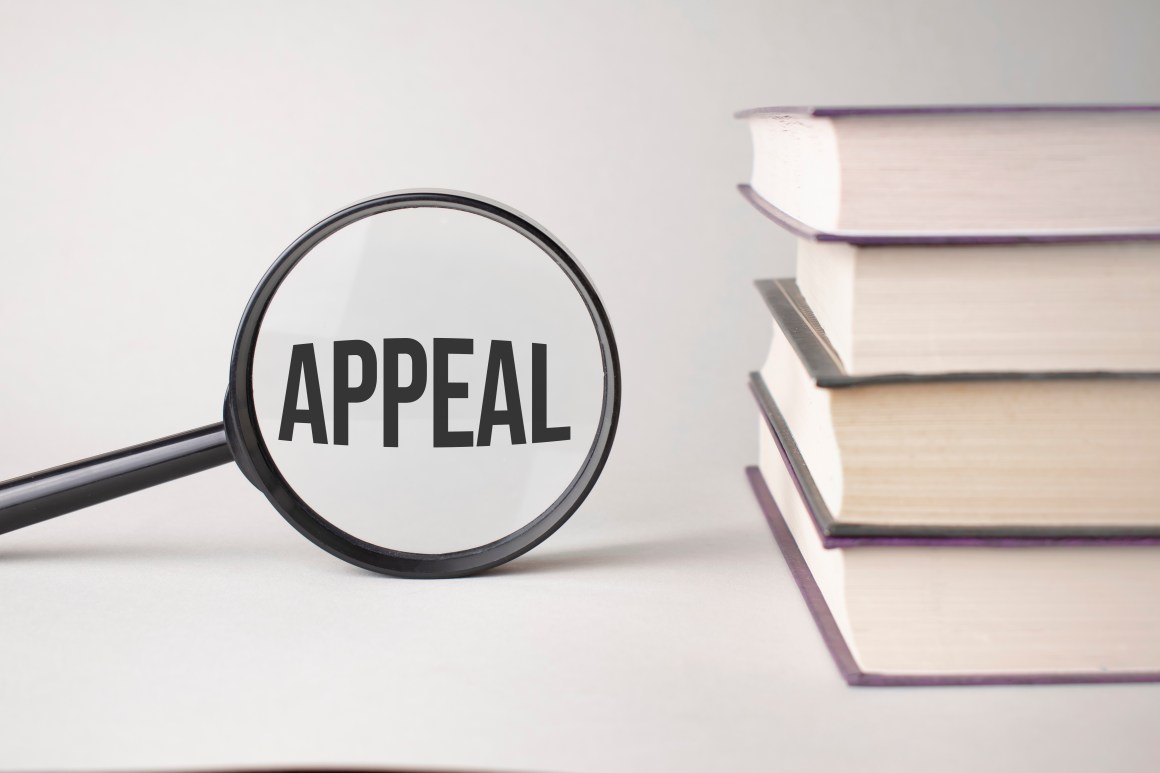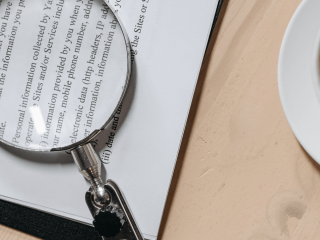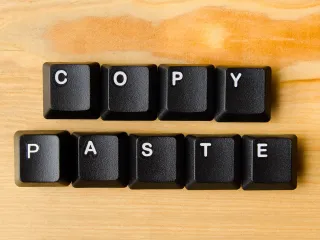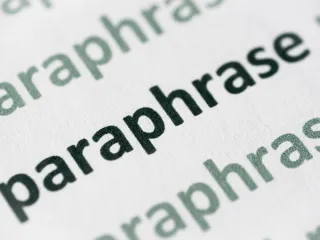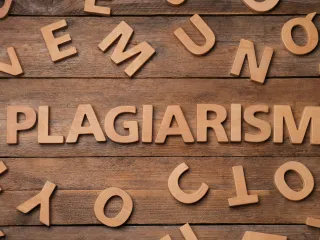If you have been accused of academic dishonesty or have gotten caught in cases of plagiarism, you may feel overwhelmed or distressed. Please rest assured you’re not alone; countless high school and college students have been in similar situations.
The consequences of plagiarism can harm your academic reputation and lead to severe disciplinary actions. However, there’s a way to address the situation effectively – crafting an apology letter as an appeal. This article provides a comprehensive guide on how to write this letter, whether you’re a college student or in high school.
Putting together an appeal letter can help you reflect on the actions that led to the accusation, such as whether you used someone else’s words without proper citation or if it was a case of unintentional plagiarism.
Either way, taking responsibility for your actions is the first step towards making things right. So, let’s begin.
Expected Consequences of Academic Plagiarism
When students are caught in cases of plagiarism, academic institutions respond with a series of penalties. These consequences, however, can differ significantly between schools and even among different classes in the same institution. The class syllabus or student handbook usually outlines specific penalties and the institution’s stance on plagiarism.
For a first offense, the consequences may be less severe than recurring cases. Additionally, the severity of the offense, whether it’s a serious act of academic dishonesty or unintentional plagiarism, also plays a significant role in determining the outcome.
In the following section, we will thoroughly explore the potential consequences students may face when accused of plagiarism.
Harmed Academic Reputation
One of the immediate repercussions of academic dishonesty is a tarnished academic reputation. A plagiarism incident can negatively impact your standing among peers, faculty members, and potential future employers.
This could affect your internship opportunities, job placements, and academic progression. Depending on the severity and frequency of the offense, your academic record might be marked with an instance of plagiarism, which can be a significant setback.
Zero on the Assignment
Regardless of whether it’s your first offense or unintentional plagiarism, getting caught can result in a zero on the plagiarized assignment. This direct consequence can significantly hamper your overall academic performance, especially if the assignment carries substantial weight toward your final grade.
Failing Grade in the Class
In more severe cases of plagiarism, the punishment may escalate to a failing grade for the entire class. This can be devastating for college students striving to maintain a high GPA, potentially leading to the need to retake the course and causing a setback in their academic journey.
Educational Course or Sanctions
Some educational institutions use instances of plagiarism as opportunities for growth and learning. They may require students involved in plagiarism cases to participate in an educational course focusing on academic integrity and proper citation practices.
Additionally, depending on the severity of the offense, additional sanctions like community service or a written reflection on the implications of plagiarism may be imposed. These measures aim to raise awareness and prevent future occurrences of academic dishonesty.
Expulsion
In the most severe cases, the student may face the ultimate penalty of expulsion from the educational institution. This serious disciplinary action is predominantly applied to repeat offenders or when a substantial portion of a significant project, like a thesis or dissertation, has been plagiarized.
Understanding the weight of this misconduct is crucial for all students, as it undermines the fundamental principles of academic integrity. Hence, it is paramount to uphold ethical practices, diligently cite sources, and respect intellectual property rights to avoid the severe repercussions of plagiarism and safeguard one’s academic future.
What is an Appeal Letter?
An academic appeal letter is a formal request written by a student to the relevant authority in their educational institution. Its purpose is to challenge or modify a decision made against the student. This letter is crucial to the appeal process as it is the primary means to present your case and ask for a more lenient outcome.
Academic appeal letters are written in various situations, such as poor academic performance, academic integrity violations (like plagiarism), or disciplinary actions. While the content of the letter may differ depending on the circumstances, the main goal remains consistent – to persuade the decision-makers to reconsider their initial judgment.
In cases of plagiarism, the appeal letter can be used to contest the accusation or explain the plagiarism, hoping to reduce the severity of the punishment. It also serves a dual purpose. Firstly, it acts as a plagiarism apology letter, expressing remorse and taking responsibility for the mistake. This apology shows that the student understands their wrongdoing and demonstrates their commitment to learning from the incident and avoiding future instances of plagiarism.
Secondly, the appeal letter offers an opportunity to explain any extenuating circumstances that may have contributed to the plagiarism incident. While extenuating circumstances do not excuse plagiarism, they can provide context that might help decision-makers better understand the situation. These circumstances could include health problems, personal crises, or any significant disruptions that may have affected the student’s judgment or performance.
Crafting an effective academic appeal letter requires sincere self-reflection and careful articulation. It goes beyond merely defending oneself and shows a genuine willingness to acknowledge mistakes and make amends.
By using your own words to explain the situation, outlining any extenuating circumstances, and offering a heartfelt plagiarism apology, you can contribute to a more comprehensive understanding of your case and possibly lead to reduced consequences.
However, keep in mind that every educational institution has its own policies and procedures for handling appeals. Therefore, it is crucial to familiarize yourself with your school’s specific appeal process before proceeding with your letter of appeal.
What to Include in an Appeal Letter?
In writing an effective appeal letter, it’s crucial to follow a structured approach that conveys your sincerity and purpose. Below are the steps you should take to create a persuasive letter of appeal:
- Address the letter to the appeals office: Begin your letter of appeal by properly addressing it to the appropriate authority. This could be the department chair, faculty member, or a specific committee overseeing student appeals. Do your research to ensure you’re addressing it to the right person or office. A formal salutation, such as “To whom it may concern,” can be a safe option if you’re unsure about the recipient’s name.
- Introduce yourself and explain why you’re writing an appeal: Start the letter by briefly introducing yourself, mentioning your role as a student, and clearly stating the purpose of the letter, which is to express a sincere plagiarism apology and to appeal the decision made regarding the plagiarism case.
- Express an understanding of your wrongdoing and a desire to improve: The next section of your letter should contain a sincere apology for your actions and an acknowledgment of your mistake. Show that you understand the severe nature of plagiarism and the impact it can have on academic integrity. Express your commitment to improve and avoid such misconduct in the future.
- Go in-depth regarding each reason for your appeal: This is the most crucial part of your appeal letter. Describe in detail the extenuating circumstances that contributed to the instance of plagiarism, providing supporting documentation where possible. Be honest, clear, and concise, and remember to explain how these circumstances directly affected your academic performance.
- Summarize your reasons, being sure to connect them: Once you have outlined each reason for your appeal, summarize your arguments and show how they are interconnected. This will help to form a coherent and persuasive case.
- Outline what you hope the outcome of the appeal will be: Lastly, clearly state what you hope the outcome of the appeal process will be. Whether you’re asking for a second chance, a reduced penalty, or another resolution, explain why this outcome is fair and beneficial for your academic journey.
Avoiding Plagiarism
Ensuring the authenticity of your work and safeguarding against plagiarism are essential steps to academic integrity. Before submitting or publishing your work, it is crucial to confirm that it truly reflects your own ideas and efforts. To aid you in this critical task, using plagiarism checkers proves to be an invaluable practice. Quetext’s plagiarism checker, a prime example of such a tool, serves as a reliable ally in verifying the originality of your content.
By thoroughly comparing your work with billions of web pages, books, and academic articles, Quetext efficiently detects any instances of matching or similar content. This not only helps you identify unintentional plagiarism but also empowers you to enhance and refine your writing. The process of revision and improvement is instrumental in honing your writing skills and boosting your confidence as an author.
Remember, the significance of maintaining academic integrity extends beyond merely evading penalties or avoiding subpar performance. It is an act of respect and contribution to the intellectual community as a whole. As you embark on your academic journey, make it a priority to check your work with Quetext’s plagiarism checker, ensuring that your words are entirely your own, and your content remains free from any traces of plagiarism.

